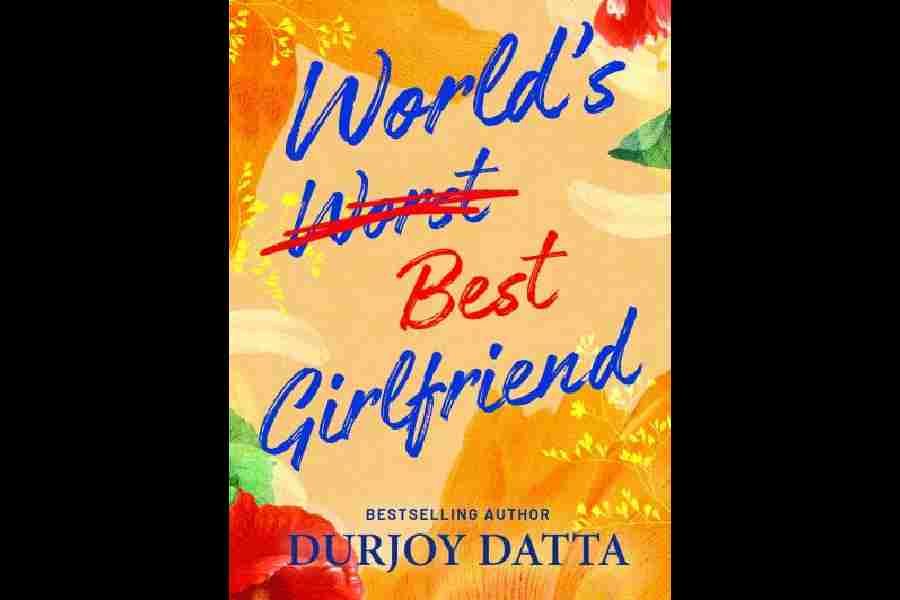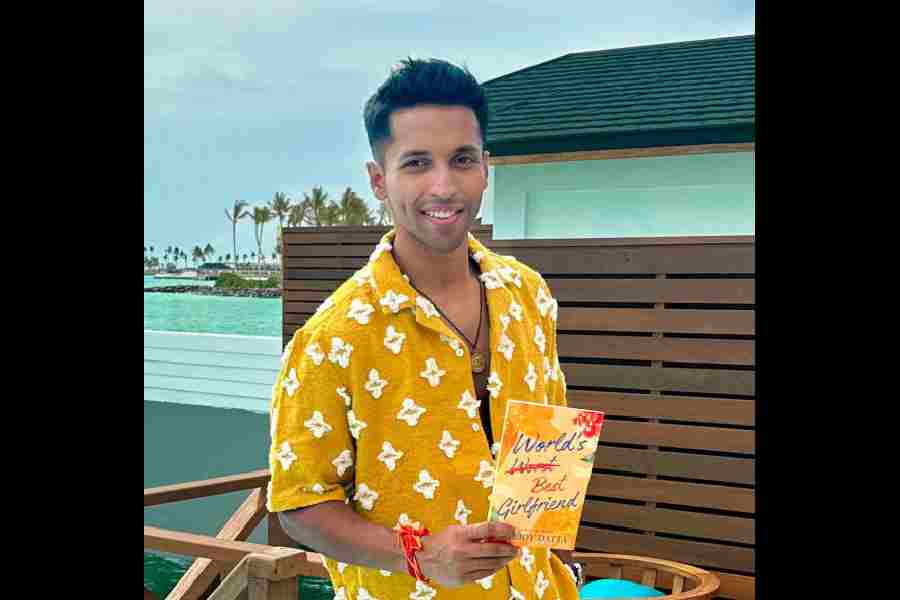From the stable of Durjoy Datta comes another page-turner, World’s Worst Best Girlfriend, and the bestselling author who is known for his romantic novels strikes a chord with the heart again with a simple yet relatable story. This time, Durjoy brings the story of Daksh and Aanchal and lets them evolve over time and figure out their principles. t2 catches up with the author to know more about the new read, his evolving concept of love and more.
What was the genesis of World’s Worst Best Girlfriend? Daksh’s character or Aanchal’s, or the holiday spot?

World’s Worst Best Girlfriend by Durjoy Datta Published by Penguin Price: Rs 199
I have always wanted to write a love story where I can chart the change in characters over decades. So, I wanted to put two people in the bang centre of the story and see how their relationship evolves as they fundamentally change as people. Daksh’s character and Aanchal’s character came from this idea, to catch two young people who are still figuring out their first principles, their value systems etc.
While both the characters are quite relatable, which one was more difficult or challenging to script?
Aanchal was the more difficult one to chart out because her decisions in the book are her own while Daksh had to mould himself to adapt to his circumstances. She’s the more active character of the two for the major part of the story and that’s always more challenging to write.
As you said Aanchal is the more active of the two characters and was the most difficult to chart. Do you like spending more time moulding a female character in your novels, consciously?
No, not really. But it happens. It’s probably because I have worked in television so much that it seeps into my novels. On TV shows, the men are usually a little more than props while the women drive the story. Maybe that’s why I write like that in books as well.
Are there any traits of you that the characters have?
I have a few from both, or have had a few. That’s what the book is essentially about — over a period of years, you change, and at first, it seems small, but slowly it snowballs and you’re an entirely different person in five or 10 years. While I might have recognised some behaviours as my own, but it could be an old part of me.
Could you relate to the characters or their circumstances?
A lot of them. Since I pick the characters’ journeys after a few years in each part, I catch them at junctions where they are making life-changing decisions. I have found myself at those crossroads pretty often as well. So, I could relate to a lot of internal journeys these characters take.
You say that you relate with the characters at some crossroads in your life. Can you pinpoint one or a few?
The toss-up between a relationship and a career, the toss-up between changing cities for the one you love, and moulding yourself to fall in love with the same person again to name a few.
The principles of dating and how millennials and GenZ see relationships have changed so much now. How much of this change do your characters reflect?
Two major changes that I see are a) the fear of missing out, and b) you tend to place your happiness above all else. Conceptually at least, I think both of these make sense. Because how do you know for sure that the person you’re with is the one? We like choice in every other aspect of our lives, so why shame the choice of partners? But of course, the flip side is that there’s a lot more anxiety and uncertainty. The second about being selfish about your own happiness has shortened the time we give to others. My characters who grow up over time reflect both changes and they eventually reach an equilibrium of sorts.
You continue your spree of releasing one story after another and they are all equally loved by your fans. What do you think connects your stories to the reader?
I have thought and obsessed about this question for a long time and I have stopped trying to find an answer. So instead, I write the book I would want to read and hope that there are enough people in the world who would want to read that exact book.
Has your idea of love changed over the years?
It has. I don’t even remember what I used to think about love when I was growing up. I will
have to read my earlier books to figure out. For me, being in love is about being charitable to each other despite the apparent flaws.
How has your idea of love, relationships and human bonding changed after you became a father? Or has it changed at all?
As cliché as it might sound, for me at least, something to look forward to, something that
gives my day purpose. Not to achieve anything great — in fact, I felt all my ambition drain out of me once I had kids, but in a nice, slow kind of way. As much as it’s a mad rush to get everything done, it’s also been calming and fun.
Tell us about the title. It keeps one wondering who you are referring to in the book.
My titles are usually kept by my editor, Vaishali Mathur, and she suggested this one as well, and I thought it was quite apt for the book. It has a nice ring to it and throws up the question: Is she the best or the worst (?) girlfriend of all time?
What’s next?
I am working on my next book. Apart from that I’m also working on an audiobook that’s going to come at the end of the year, a couple of shows. That’s all.
You also write for the screen. How different or challenging do you find that and are you working on anything new for the screen?
It’s interesting because unlike books you’re working with a team and that makes it more
dynamic and fun. Two of my shows will be released in the next few months. One of them is based on my books, the other one is an original; so I’m really excited about that.
What do you like watching on screen? Anything that you really liked recently?
I started watching The Bear and For All Mankind; both of them are pretty engaging.
What are you currently reading?
I’m trying to read a lot of books that are coming from the YA romance space in the West — Ali Hazelwood, Lynn Painter, Emily Henry, that sort of stuff.
